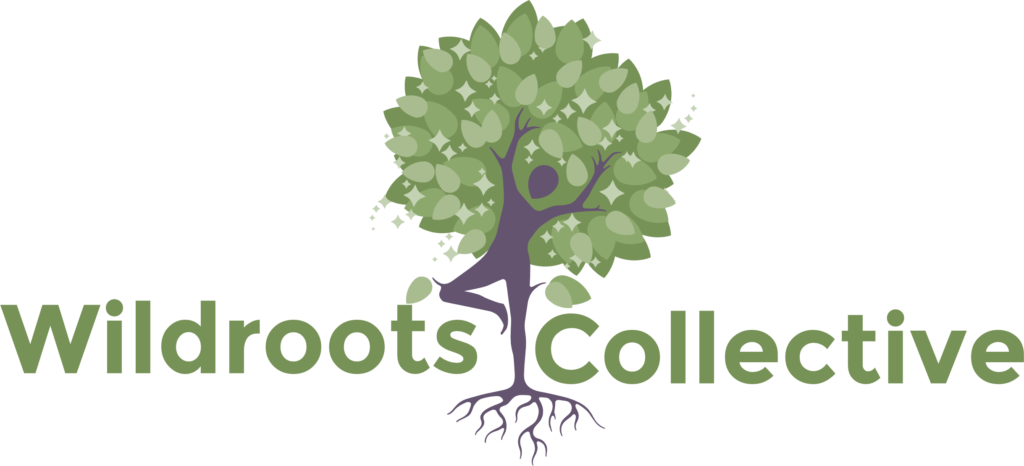All moms are haunted by the “Good Mother Myth.” This is the idea that all mothers are inherently good, loving, serving, devoted, doting, healthy, and happy to be so. This is not only NOT the reality, but this falsehood sets many mothers up for a devastating shame spiral. Complex emotions surround motherhood and if you are struggling, Wildroots Collective offers online therapy that can help you manage the stress and mental instability that often accompanies childbirth and raising a child.
Becoming and being a mom is incredibly difficult, and we don’t talk about this truth enough. It’s something that is happening all around us. Up to 20% of parents suffer from perinatal depression, perinatal anxiety and even perinatal OCD. Perinatal is the period from conception to 1 year post-birth. It’s important to remember that the challenges of becoming a parent can happen throughout this time period; some mothers are more prone to symptoms just during the postpartum period, which is after birth.
These are complicated and challenging mental health conditions that many parents experience. However, when we experience the symptoms of these perinatal mental health challenges, the widening gap between our expectations of the childbirth/parenting experience and the actual experience can make us feel shocked, surprised, unprepared and like we are failing in some way.
Our cultural narrative dictating what a “good mom” is gets louder and in response our internal stories become full of shame-based criticisms, telling ourselves we aren’t good at this, we are awful mothers and caregivers, and we don’t deserve to be in this role.
Take this, and add our body’s recovery from the physical trauma of birth (even when it goes as planned, it’s a physically exhausting experience), and the overwhelm of trying to survive this phase of parenting feels heavier and heavier. While every body recovers in a different way, it feels impossible to escape the comparisons to how you “should be rebounding”. These comparisons based on this “good mother” myth hang over our shoulders every step of the way. You are not deficient for feeling these things, you are beautifully human.
Being a mom can indeed be amazing, transcendent, and incredibly fulfilling. However, the experience of becoming a parent is a major life transition, bringing with it an entirely new identity, a new way of seeing and feeling and being yourself.
Of course, this happens in conjunction with major body and hormonal changes, relationship changes and lifestyle changes. The birth of a child brings with it the birth of a parent, whether it is your first, your second or your fifth, you are a different version of yourself each time. It makes sense then, that this transition involves periods of significant depression, anxiety or OCD symptoms.
Recognizing These Symptoms
But what do these symptoms even look like? How do you know the way you’re feeling isn’t from the normal shifts and is connected to something bigger and deeper?
Well, for starters, the “baby blues” is an emotional experience that lasts from a few days after birth (about when the breast colostrum changes to milk) up to about two weeks. If feelings of melancholy, intense emotional shifts, feeling detached from your baby, your loved ones or yourself, or feelings of hopelessness or guilt last for more than two weeks, you may be looking at a mental health condition that is a little more serious than the passing baby blues.
If this is the case, you have resources, reach out and get some help and emotional support. You are not in this alone. Therapy can help, and counseling services from a therapist trained in maternal mental health can be a great help. Postpartum Support International offers a helpline to get started: 1.800.944.4773, the HRSA Maternal and Child Health has a 24/7 hotline: 1-833-TLC-MAMA. At Wildroots Collective, we also offer mental health counseling for struggling moms, although we are not a crisis response team.
Maternal mental health is a big deal because it impacts the parent, the child and the family dynamic. In fact, suicide is the leading cause of postpartum deaths (Westgate et al, 2023). If you are feeling suicidal or having any thoughts of harming yourself, or feel that your baby is better off without you:
- Help is available 24/7
- It can get better and there is nothing wrong with you for having these thoughts. It’s a surprisingly common experience for people who suffer from perinatal mood disorders.
- Please call your emergency hotline or the HRSA Maternal and Child Health 24/7 hotline: 1-833-TLC-MAMA.
Perinatal Mental Health Disorder Symptoms
Postpartum Support International offers incredible resources to navigate this period of time. If you are experiencing any of the symptoms below, understand that this is not your fault, and it will get better.
These are common and highly under-reported experiences by many parents. Having a child is a major developmental period, and it is normal to have a range of intense feelings including grief, rage, sorrow and fear.
Let’s deconstruct the “good mother myth” and together we can rewrite the maternal experience that matches reality and sheds light on the beautiful, the terrifying, the ugly, the challenging, the mysterious and the incredible growth that both parent and child experience in the process.
Symptoms of perinatal depression may include but are not limited to:
- Feelings of anger, irritability and/or rage
- Lack of interest in the baby
- Disturbances of sleep and appetite
- Crying and sadness
- Feelings of guilt, shame or hopelessness
- Loss of interest, joy or pleasure in things you used to enjoy
- Possible thoughts of harming the baby or yourself
Symptoms of perinatal anxiety may include but are not limited to:
- Constant worry
- Feeling that something bad might happen
- Racing thoughts
- Disturbances of sleep and appetite
- Inability to sit still
- Physical symptoms could include dizziness, hot flashes diarrhea and nausea
- Feelings of anger, irritability and/or rage
- Nervousness/on edge/anxious, trouble relaxing
Symptoms of perinatal OCD may include but are not limited to:
- Obsessions – Also called intrusive thoughts, which are persistent, repetitive thoughts or mental images that are often related to the baby. These thoughts are very upsetting.
- Compulsions – This is where you may do certain things over and over again to reduce your fears and obsessions. This may include things like needing to clean constantly, checking things many times, counting, or reordering things and/or avoiding triggers.
- A sense of horror about these thoughts
- Fear of being left alone with the infant
- Hyper-vigilance in protecting the infant
Symptoms of postpartum post-traumatic stress disorder (PTSD) may include but are not limited to:
- Flashback of a past traumatic event (which in this case may have been the childbirth itself)
- Nightmares
- Avoidance of reminders associated with the event, including thoughts, feelings, people, places and details of the event
- Persistent increased arousal (irritability, difficulty sleeping, hypervigilance, exaggerated startle response)
- Anxiety and panic attacks
- Feeling a sense of unreality and detachment
- Avoidance of aftercare following a birth trauma
Bipolar disorder can look like severe depression or anxiety and can include many symptoms. Symptoms of perinatal bipolar episode onset may include but are not limited to:
- Periods of severely depressed mood and irritability
- Elevated mood, higher energy than normal.
- Rapid speech
- Little need for sleep
- Racing thoughts
- Trouble concentrating
- Overconfidence
- Impulsiveness
- Poor judgment
- Distractibility
- Grandiose thoughts
- Inflated sense of self-importance
- In the most severe cases, delusions and/or hallucinations
Childbirth may be a specific trigger for a manic episode, which could then be followed up by the onset of depression.
Symptoms of postpartum psychosis may include but are not limited to:
- Delusions or strange beliefs
- Hallucinations (seeing or hearing things that aren’t there)
- Feeling very agitated
- Hyperactivity or having more energy than usual
- Severe depression or lack of emotion
- Decreased need for or inability to sleep
- Paranoia and suspiciousness
- Rapid mood swings
- Difficulty communicating at times
NOTE: Postpartum psychosis requires immediate treatment as these symptoms indicate a high risk of harm to self or infant. Call your doctor or an emergency crisis line immediately if you have any concerns about yourself or your loved one experiencing postpartum psychosis. This is a medical condition due to several factors and you are not to blame if you are experiencing these symptoms.
Wildroots Collective: Virtual Therapy For Women
Mental health counseling can be hugely beneficial for women navigating the complex perinatal journey. While the symptoms above are common, no one should have to go through this alone, and we offer holistic therapy that can help with depression, anxiety and even perinatal OCD.
At Wildroots, we truly believe that all women have an innate strength inside of them, and online therapy services can help you recognize this strength and harness it. Talk therapy, mindfulness therapy, cognitive behavioral therapy and other strategies can be hugely beneficial and help reduce these symptoms and help you regain control of your life as well as increase your enjoyment of motherhood.
Whether you need a trauma therapist, a therapist for anxiety, a therapist for depression or are experiencing any of the symptoms mentioned above, we can help. You do not have to continue on in misery with no emotional support. We encourage you to contact us as soon as possible for help or, again, contact the HRSA Maternal and Child Health has a 24/7 hotline at 1-833-TLC-MAMA.
Wildroots Collective offers online therapy for women suffering from perinatal issues as well as women needing any type of individual therapy. We serve clients virtually in Montana, Wyoming and Colorado, and we offer a free consultation, so please get in touch with us and schedule some self-care. You ARE a great mom, and you deserve to live your best life, and therapy can help.



